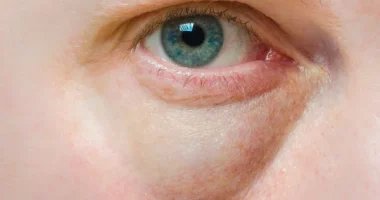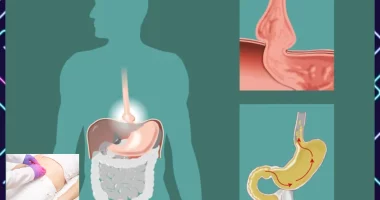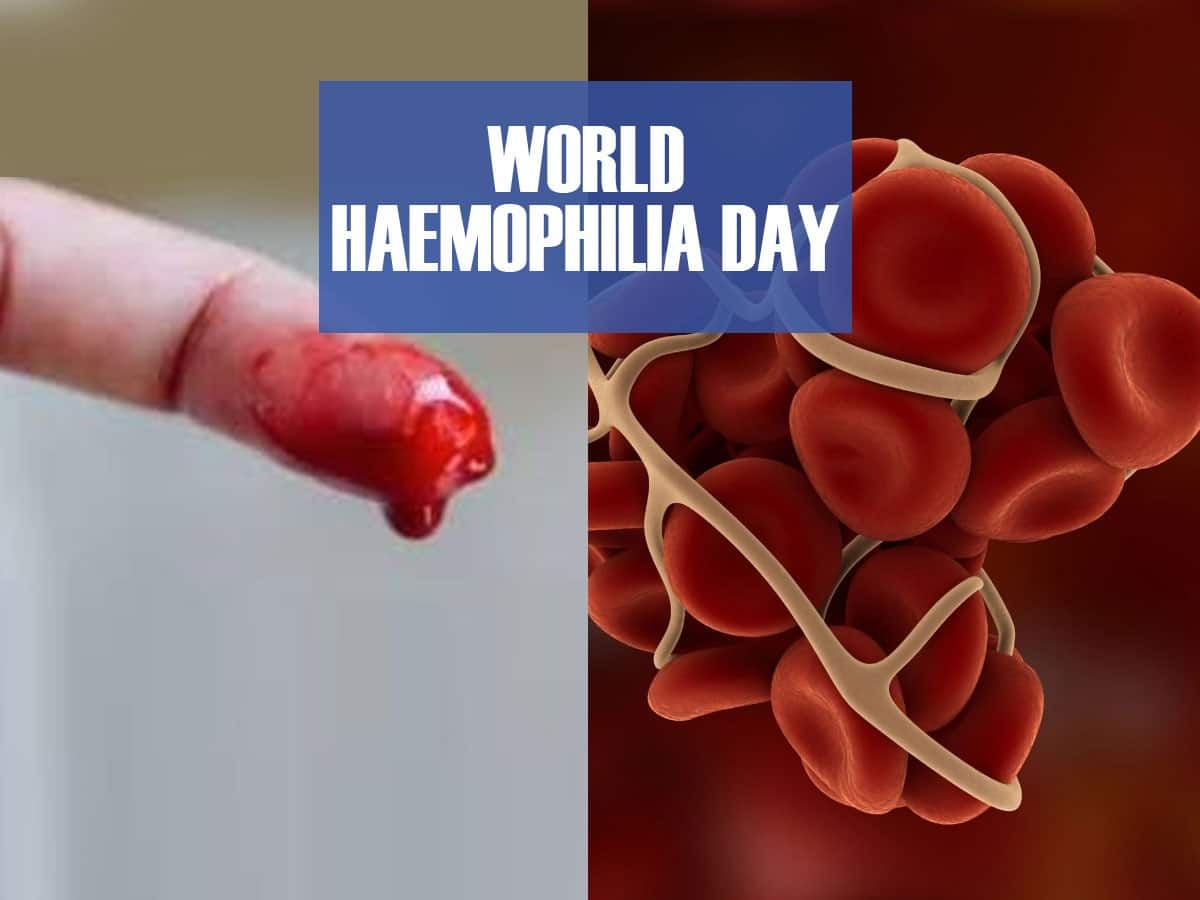These signs mean you may be suffering from liver cancer – Liver cancer is a disease in which malignant cells form in the tissues of the liver. The liver is one of the largest organs in the body and has many important functions, including filtering harmful substances from the blood, making bile to help digest fat, and storing glycogen (sugar) for energy. There are two main types of liver cancer: primary liver cancer, which starts in the liver, and secondary liver cancer, which spreads to the liver from other parts of the body. The most common type of primary liver cancer is hepatocellular carcinoma (HCC). Liver cancer often occurs in people with underlying liver disease, such as cirrhosis, and is more common in men than women[1].
These signs mean you may be suffering from Liver Cancer
The signs and symptoms of liver cancer are important to understand as they can indicate a potential health concern. Some of the most common symptoms of liver cancer include:
- Weight loss (without trying)
- Loss of appetite
- Feeling very full after a small meal
- Nausea or vomiting
- Pain in the abdomen (belly) or near the right shoulder blade
- Swelling or fluid build-up in the abdomen (belly)
- Itching
- Yellowing of the skin and eyes (jaundice)
- Unexplained fatigue or weakness
- Enlarged liver or spleen
- Fever
- Enlarged veins on the belly
- Abnormal bruising or bleeding
- Unexplained anemia
- High blood calcium levels
- Low blood sugar levels
- Hormonal changes leading to symptoms such as breast enlargement in men or shrinkage of the testicles
- High red blood cell count, causing redness and flushing of the skin.
It’s important to note that having one or more of these symptoms does not necessarily mean a person has liver cancer, as many of these symptoms can be caused by other conditions. However, if any of these symptoms are experienced, it is essential to consult a doctor for proper evaluation and diagnosis[2].
Common Risk Factors
- Chronic viral hepatitis: Hepatitis B and C infections are the leading causes of liver cancer worldwide. If you have been diagnosed with either of these viruses, it is important to get regular checkups and follow your doctor’s recommendations for treatment.
- Cirrhosis: Cirrhosis is a condition in which the liver is severely damaged and scarred. It can be caused by a variety of factors, including chronic hepatitis, alcohol abuse, and nonalcoholic fatty liver disease. Cirrhosis increases your risk of developing liver cancer by up to 100 times.
- Heavy alcohol use: Drinking too much alcohol can damage the liver and increase your risk of developing cirrhosis and liver cancer. Men who drink more than two drinks per day and women who drink more than one drink per day are considered to be at increased risk.
- Obesity and nonalcoholic fatty liver disease (NAFLD): Obesity is a major risk factor for NAFLD, a condition in which excess fat builds up in the liver. NAFLD can progress to cirrhosis and liver cancer, especially if it is accompanied by other risk factors such as type 2 diabetes.
- Type 2 diabetes: People with type 2 diabetes are more likely to develop NAFLD and liver cancer than people without diabetes.
- Aflatoxin exposure: Aflatoxin is a toxin produced by a mold that can grow on certain foods, such as peanuts, corn, and grain. Exposure to aflatoxin can increase your risk of liver cancer.
- Family history of liver cancer: If you have a close family member who has had liver cancer, you are at an increased risk of developing the disease yourself.
Diagnosis and Screening
The diagnosis and screening of liver cancer involve various tests and procedures. Screening options for liver cancer include testing the blood for a substance called alpha-fetoprotein (AFP) and having imaging tests such as ultrasound, computed tomography (CT) scan, or magnetic resonance imaging (MRI).
For individuals at higher risk, some experts recommend screening for liver cancer with AFP blood tests and ultrasound exams every 6 months. If liver cancer is suspected, the following tests and procedures may be used for diagnosis:
Blood tests: These may reveal liver function abnormalities.
Imaging tests: Such as ultrasound, CT scan, and MRI to create detailed pictures of the liver.
Liver biopsy: A procedure to remove a sample of liver tissue for testing to confirm the presence of cancer cells.
It’s important to note that not all individuals at average risk for liver cancer are widely recommended for screening tests, and testing might be recommended for some people at higher risk, such as those with long-standing cirrhosis, hereditary hemochromatosis, or chronic hepatitis B infection.
Living with Liver Cancer
Living with a diagnosis of liver cancer can be daunting, but it’s important to remember you’re not alone. With the right support and information, you can manage your condition and navigate this challenging journey. Here, we’ll delve into key aspects of living with liver cancer:
Dietary Considerations:
- Maintaining a healthy diet: Aim for a balanced, nutrient-rich diet that supports your overall health and liver function.
- Focus on fruits, vegetables, and whole grains: These provide essential vitamins, minerals, and fiber.
- Choose lean protein sources: Fish, poultry, and beans are good options.
- Limit unhealthy fats: Avoid saturated and trans fats found in processed foods and fried items.
- Moderate salt intake: Excessive sodium can worsen fluid retention, a common issue in liver cancer.
- Hydration is key: Drink plenty of water throughout the day to stay hydrated and flush out toxins.
- Talk to a registered dietitian: They can personalize a nutrition plan based on your specific needs and preferences.
Emotional Well-being:
- Facing a cancer diagnosis can be emotionally challenging. Here are some ways to cope:
- Acknowledge your emotions: Allow yourself to feel sad, angry, or scared. Talking about your emotions can be helpful.
- Connect with loved ones: Share your feelings with supportive family and friends.
Join a support group: Connecting with others who understand what you’re going through can be invaluable. - Seek professional help: A therapist can provide counseling and coping strategies.
- Practice relaxation techniques: Yoga, meditation, and deep breathing can help manage stress and anxiety.
- Focus on self-care: Make time for activities you enjoy, even if it’s just reading or spending time in nature.
Prevention:
- Vaccination: Get vaccinated against hepatitis B to prevent infection, a major risk factor.
- Safe sex practices: Use condoms to prevent hepatitis B and C transmission through sexual contact.
- Limit alcohol consumption: Excessive alcohol intake damages the liver and increases cancer risk. Aim for moderation or abstinence.
- Maintain a healthy weight: Obesity and NAFLD are linked to liver cancer risk. Strive for a healthy weight through diet and exercise.
- Manage diabetes: If you have diabetes, maintaining good blood sugar control can help reduce the risk of NAFLD and its complications.
- Avoid aflatoxin exposure: Choose properly stored and processed foods to minimize exposure to this toxin.
- Talk to your doctor: If you have a family history of liver cancer or other risk factors, consult your doctor for personalized advice on prevention strategies.
The outlook for liver cancer depends on various factors, including the stage of diagnosis, underlying liver health, and the type of treatment received. Early detection is crucial for better outcomes. Here’s a general overview:
- Early-stage: Early diagnosis and treatment offer significantly improved survival rates.
- Advanced-stage: Treatment options may focus on managing symptoms and improving quality of life, though some advanced cases may still respond well to targeted therapies.
- Liver function: The overall health of your liver plays a significant role in determining suitable treatment options and prognosis.
ALSO READ: 10 Foods That Can Cause More Damage To Your Liver Than Alcohol









